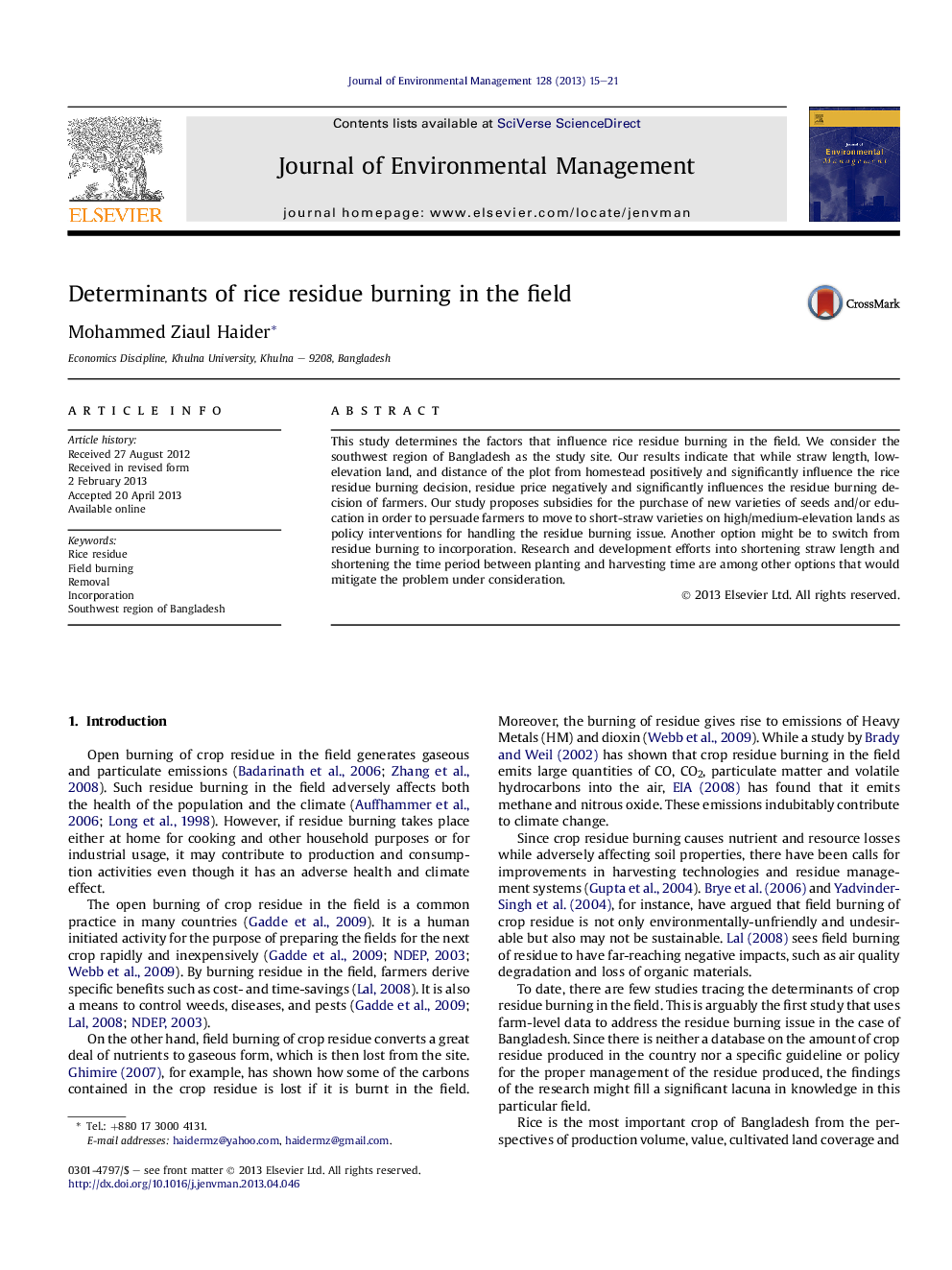| Article ID | Journal | Published Year | Pages | File Type |
|---|---|---|---|---|
| 7484136 | Journal of Environmental Management | 2013 | 7 Pages |
Abstract
This study determines the factors that influence rice residue burning in the field. We consider the southwest region of Bangladesh as the study site. Our results indicate that while straw length, low-elevation land, and distance of the plot from homestead positively and significantly influence the rice residue burning decision, residue price negatively and significantly influences the residue burning decision of farmers. Our study proposes subsidies for the purchase of new varieties of seeds and/or education in order to persuade farmers to move to short-straw varieties on high/medium-elevation lands as policy interventions for handling the residue burning issue. Another option might be to switch from residue burning to incorporation. Research and development efforts into shortening straw length and shortening the time period between planting and harvesting time are among other options that would mitigate the problem under consideration.
Related Topics
Physical Sciences and Engineering
Energy
Renewable Energy, Sustainability and the Environment
Authors
Mohammed Ziaul Haider,
